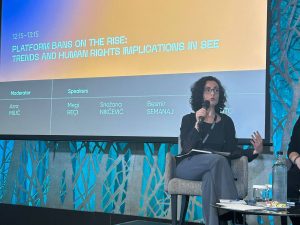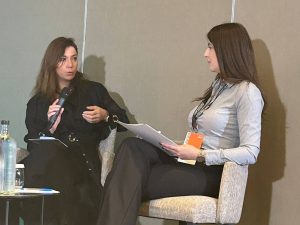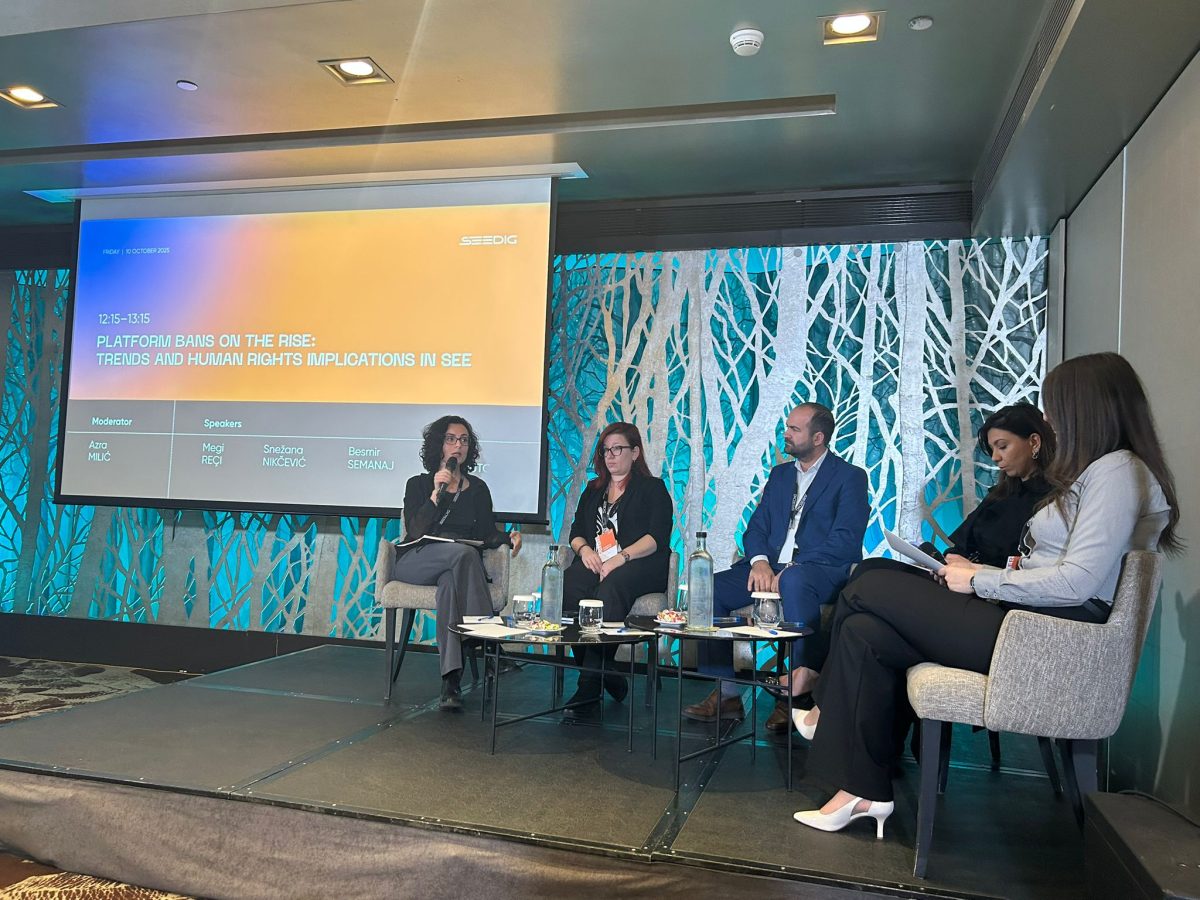BIRN hosted a panel session on October 11 in Athens entitled “Platform Bans on the Rise: Trends and Human Rights Implications in South East Europe”.
The panel opened an important conversation about the growing trend of platform bans in South-Eastern Europe and their impact on freedom of expression, political participation, and privacy rights. Drawing on BIRN’s regional monitoring of digital rights violations, it explored the timing and legal implications of bans, their impact on democratic processes, and strategies for safeguarding civic space.
The panel brought together a diverse group of experts and practitioners: Aida Mahmutović, Project Manager at BIRN Kosovo, Megi Reci, Digital Rights Research Lead at BIRN Hub, Snežana Nikčević, a civic-tech advocate at NGO 35mm, and Besmir Semanaj, a digital rights researcher and technology expert. The panel was moderated by Azra Milić, Digital Rights Programme Coordinator at BIRN Hub.
One of the central messages of the panel was that platform bans, though often presented as protective or regulatory measures, are being weaponized to shrink the civic space and limit fundamental rights. The speakers highlighted how these actions affect journalists, activists, and everyday users, underscoring the urgent need for more transparent, rights-based governance models in the digital space.

Reflecting on regional developments, Megi Reci noted: “While Turkey takes an assertive stance, using legal, technical, and informal means to ban or throttle platforms, hybrid regimes in Albania and Serbia echo some of these censorship and legal trends, despite their formal commitment to EU integration and digital policies focused on regulation over censorship. We agreed the WB6 can’t remain on the fence, and must choose between authoritarian control of the digital space or a transparent, rights-based governance models.”

The panel also emphasized the role of media in raising awareness and facilitating dialogue on digital rights issues. Aida Mahmutović reflected on the evolution of media engagement in these processes, noting: “Over the past decade, we have seen how the role of media and journalism has evolved at the global Internet Governance Forum from mere participation and reporting on outcomes to shaping the discussion and the agenda with our unique perspective. We were happy to see that also brought into the South East European region through the panels and workshops at SEEDIG 10.”
This year’s SEEDIG event, marking ten years of multistakeholder dialogue and collaboration on internet governance and digital policy, coincided with BIRN’s celebration of 20 years of defending democracy, media freedom, and human rights across Southeast Europe.
The panel in Athens was a powerful reminder of the importance of regional cooperation in safeguarding these values and ensuring that the digital space remains open, inclusive, and grounded in human rights.

